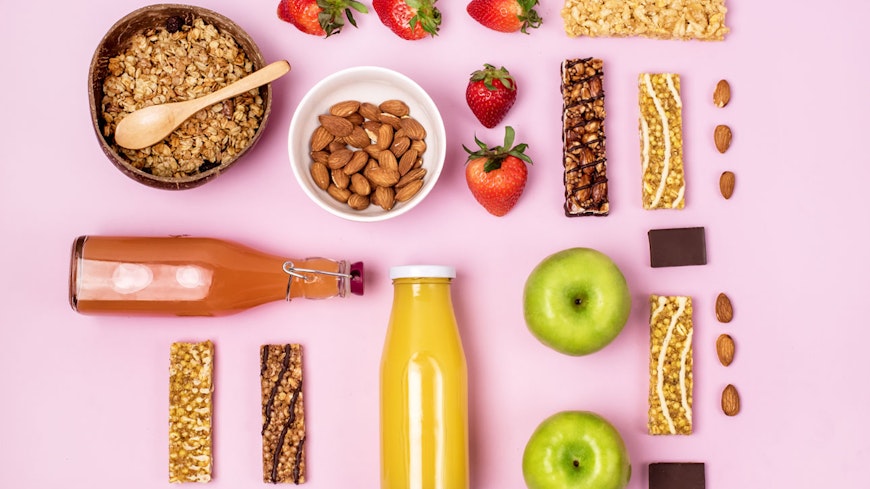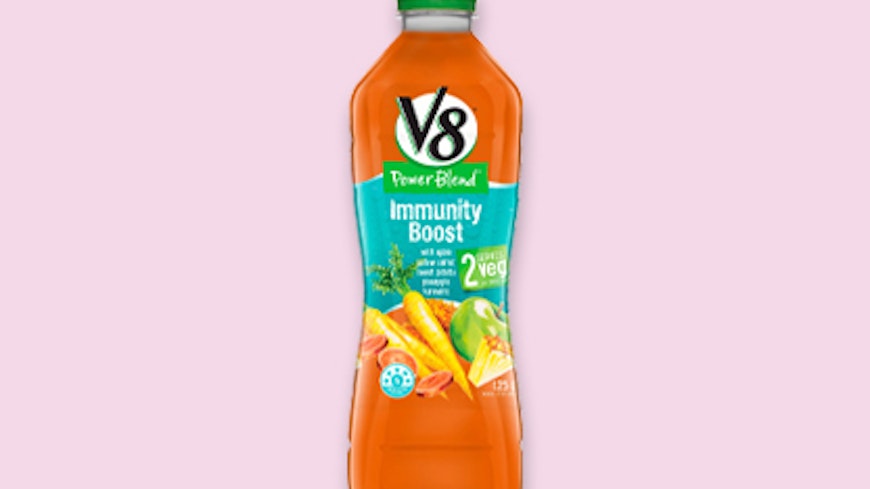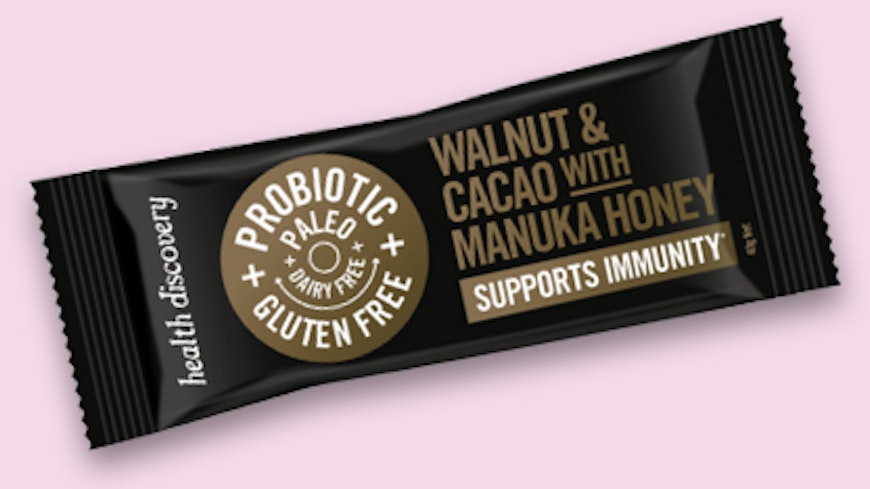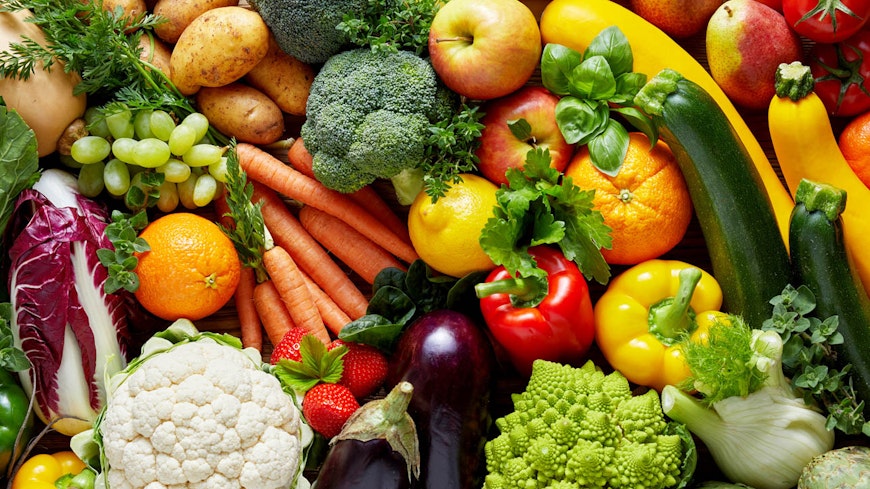
By Belinda Castles
Researcher | Kairangahau
In our recent survey of people who take natural health products, 23% of respondents said they take them for immunity. So, it’s not surprising food marketers are jumping on the immunity bandwagon.
From breakfast cereals to juices, there’s a range of products on shop shelves claiming to “support” or be “vital to your immunity”. With winter bugs doing the rounds, they are a tempting purchase, but are they more hype than health?

Health claims on food are regulated by the Food Standards Code. While no high-level claims that refer to a disease or biomarker have been pre-approved about immunity, the Code allows food companies to make general immunity claims.
A product can claim to be “necessary for normal immune system function” if it has 10% of the recommended daily intake (RDI) for adults per serving of copper, iron, selenium, zinc or folate. It can claim a product “contributes to normal immune system function” if it contains the required levels of vitamin A, B6, B12 or C. To make a claim the product must also meet certain nutrient requirements.
We checked out a range of products making these claims to see whether they stack up.
Immunity drinks

V8’s Power Blend Immunity Boost fruit juice claims to be a good source of vitamin C to help support your immune system. The Homegrown Fruit Juice Company also has an immunity blend. But Professor Clare Wall, Head of the Department of Nutrition and Dietetics at Auckland University, said when it comes to vitamins and minerals from fruit and vegetables, it’s best to eat, not drink them.
“Fruit juice is a high-sugar drink as it contains all the naturally occurring sugar found in the many pieces of fruit required to make one glass of juice. Fruit is more filling than juice and provides more fibre and much less sugar than juice. Juices are also acidic which can lead to tooth decay,” Professor Wall said.
The Ministry of Health guidelines recommend people eat fresh fruit and drink plain water rather than drinking fruit juice.
If you’d rather down your drink, you could be tempted by an “immunity” shot, but these products don’t come cheap. Barkers Immunity Shots ($8.49 for seven servings) states each shot contains 200% of an adult’s RDI for vitamin C. Daily Good Immunity Shots ($19.99 for seven servings) claims it’s the zinc in its product that’s “vital to your bodies immunity” with each shot containing 27% of an adult’s RDI. Remedy Immune + ($3.80) is a kombucha shot with vitamins A, C and B6.
Professor Wall said you are better off spending your money on fruit and vegetables than expensive fruit-based shots. Also, when it comes to vitamin C, more isn’t always better.
“Vitamin C is water soluble. We don’t store it, so your body generally gets rid of what you don’t use. Very high chronic intakes can also cause GI disturbances such as diarrhoea and nausea.”
Healtheries and Red Seal both make an immunity tea containing echinacea and vitamin C. There are no pre-approved or self-substantiated claims allowed in New Zealand regarding echinacea and immunity – the claim is allowed because of the added vitamin C.
Immunity foods

Health Discovery Walnut and Cacao with Manuka Honey Bar claims it “supports immunity”. The back label states it contains a “breakthrough daily probiotic with over 2 billion bacteria to support immune response”.
But there is currently limited evidence that probiotics improve immune function. The European Food Safety Authority has rejected health claims for probiotics on the grounds of insufficient evidence, including those around improved immunity. In New Zealand, no health claims have been pre-approved for probiotics.
Each Health Discovery bar also contains high levels of saturated fat (8.9%) and is nearly one-quarter sugar (24.3%).
Professor Wall said processed foods that claim to support immunity aren’t necessary.
“Although the sugar predominantly comes from the date syrup and honey, these are considered free or simple sugars with similar health concerns to sucrose or table sugar.”
Immunity claims have also made their way into the cereal aisle. Vogel’s Immunity Muesli Clusters (part of its “Wellness” range) contain vitamin C and zinc. But you’ll pay a premium for this range. These cereals are $2.38 per 100g, compared with $1.44 for its Clusters range and $2.13 for its Café-style range.
It’s a similar story for Harraways Blackcurrant Spiced Apple Oats with iron and zinc for immunity. Per 100g these oats cost 70c compared with Harraways Rolled Oats at 62c.
Dietary supplements

There’s no shortage of dietary supplements in the form of pills, effervescent tablets or syrups making immunity claims.
Professor James Ussher from the Department of Microbiology and Immunology at the University of Otago said while sufficient intake of micronutrients is important for normal immune function, and deficiencies of micronutrients such as zinc and vitamin A make people susceptible to infection, these deficiencies are rare in New Zealand.
“There’s limited evidence that supplementation with vitamins and other micronutrients prevents infections, and micronutrient supplements can be toxic at high doses. For most people, diets that are plant-based and include some animal-derived foods (meat, oily fish, dairy, eggs) are the best way to get your micronutrients,” Professor Ussher said.
Companies haven’t forgotten about kids either. Many brands sell immune gummies marketed for children. Selling points for gummies are that they are “great tasting”, “ideal for fussy eaters” and “provide a nutritional top-up".
The Ministry of Health recommends children only take supplements when a particular need is identified or when a child is on a restricted diet due to a food allergy. The ministry also says reliance on supplements may lead to a false sense of security about a child’s diet and may justify poor food choices, as well as reduce the amount of money available for food.
There’s also a concern that these lolly-like substances can encourage a sweet tooth at a young age, and their sticky consistency can damage teeth.
If you think you or your child has a vitamin or mineral deficiency, you should consult your GP or a registered dietitian.
What do the rules say about health claims?
Food and drinks
Health claims are regulated by the Australia and New Zealand Food Standards Code and refer to a relationship between food and health. Health claims are only allowed on foods that are sufficiently “healthy” by taking into account levels of certain nutrients and the amount of fruit, vegetables, nuts and legumes in a product.
There are two types of claims permitted:
General-level health claims refer to a nutrient, substance or food and its effect on general health and wellbeing. For example, iron is necessary for normal immune system function.
High-level health claims refer to a serious disease or a biomarker. For example, diets high in calcium may reduce the risk of osteoporosis. There are no high-level health claims approved about immunity.
There are more than 200 pre-approved general-level health claims and 13 pre-approved high-level health claims. Companies wishing to use a claim that isn’t pre-approved must notify Food Standards Australia New Zealand (or the Ministry for Primary Industries (MPI) if the product is a supplemented food). As part of the notification, the company must declare it has evidence which meets certain requirements to substantiate the claim. MPI evaluates every notification by a New Zealand company.
Dietary supplements
Dietary supplements have been laxly governed by decades-old regulations. There’s been no pre-vetting of claims and manufacturers haven’t had to get approval before selling their products. Although dietary supplements couldn’t claim to treat or prevent a condition, companies got around this by using vague language, such as “may assist” or “may help”.
That’s set to change with the Therapeutic Products Act which was passed into law in July. The act will regulate natural health products, which covers everything from vitamin and mineral supplements to traditional and herbal remedies. There’s an exemption for small scale natural health product manufacturers. Rongoā Māori practitioners won’t be regulated unless products are made for export or commercial reasons.
We supported a number of the provisions in the act. These include requiring market authorisation for natural health products, having a publicly available register of natural health products, and having a list of permitted health benefit claims.
We are pleased the act requires a post-market surveillance and response system for all therapeutic products. As part of this, sufficient funding must be allocated for monitoring the compliance of health claims. We’d also like a publicly accessible complaints process so it’s easy for consumers to make a complaint.
Most provisions of the act will come into effect in 2026. A new regulator will be established to oversee the regime.
Read our submission on the Therapeutic Products Bill.

Top 5 tips for a healthy immune system
Eat a variety of fruits and vegetables – in particular green leafy vegetables, brassicas (such as broccoli, cabbage and cauliflower), and citrus fruits. Buying in season is cheaper. Frozen or canned fruit and vegetables are low-cost options, but choose no added sugar or salt products.
Include wholegrain foods, beans, fruits and vegetables in your diet. These are high in dietary fibre and provide the prebiotics for maintaining a healthy gut microbiota (important for immune cell activity).
Cut back on ultra-processed foods. These foods tend to be high in unhealthy nutrients such as sodium and refined sugar.
Wash hands regularly. This helps reduce the spread of viruses, colds and flu. The recommendation is to wash them for 20 seconds and dry them for 20 seconds.
Don’t forget other lifestyle factors. Regular exercise, adequate sleep, some sun exposure (for vitamin D), limiting alcohol and not smoking will promote immune function.

We can't do this without you.
Consumer NZ is independent and not-for-profit. We depend on the generous support of our members and donors to keep us fighting for a better deal for all New Zealanders. Donate today to support our work.


